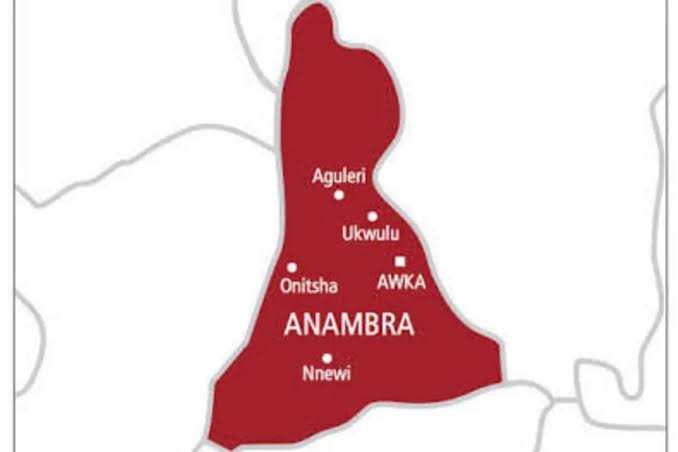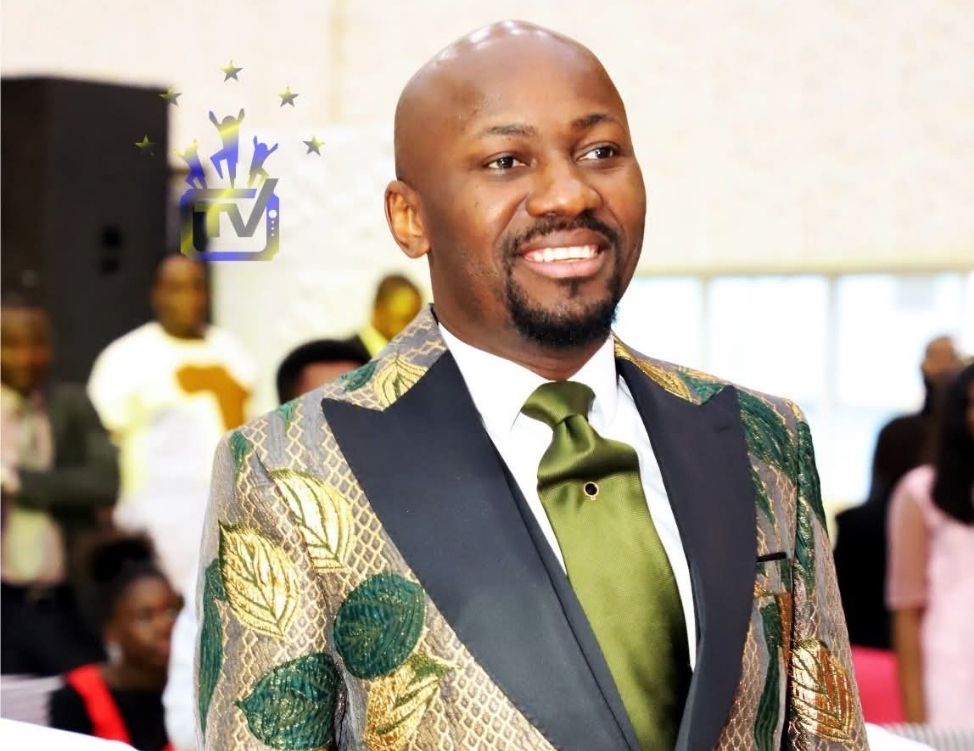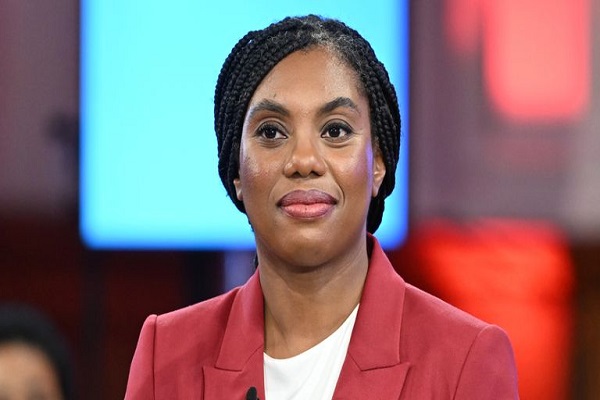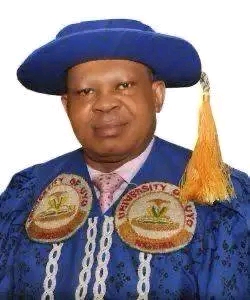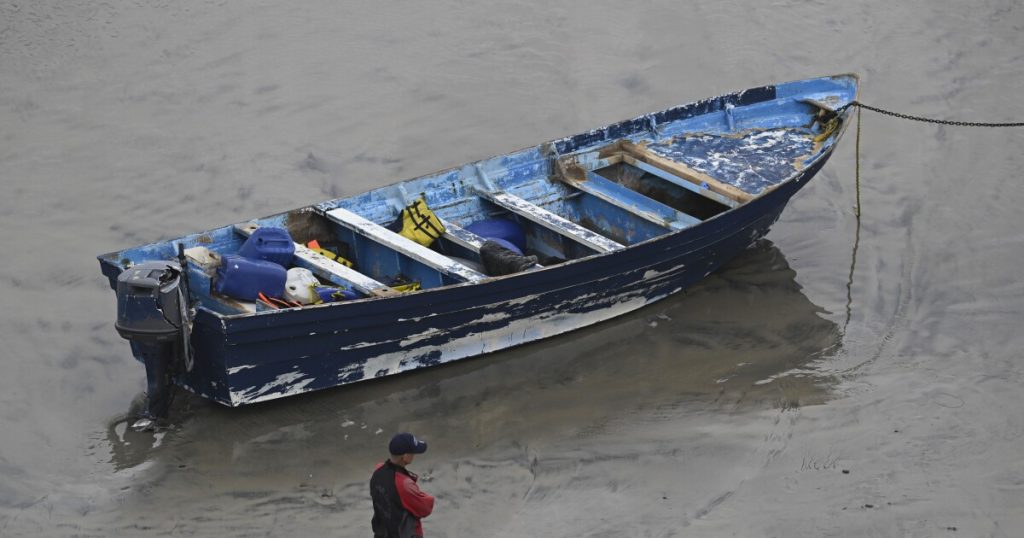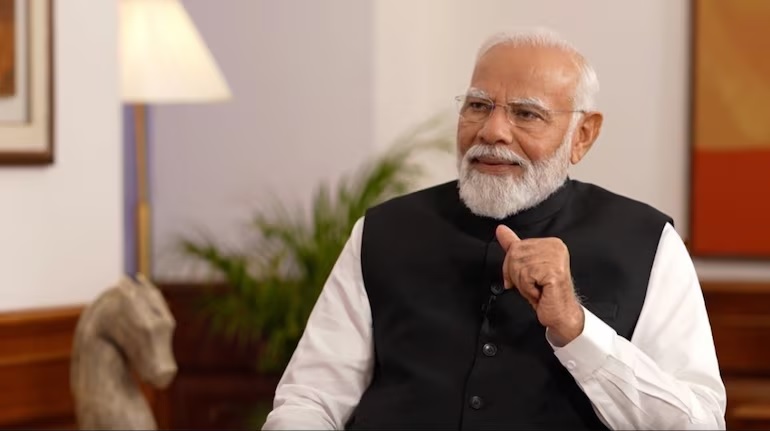Africa
Nigeria to U.S.: We Won’t Take Your Deportees
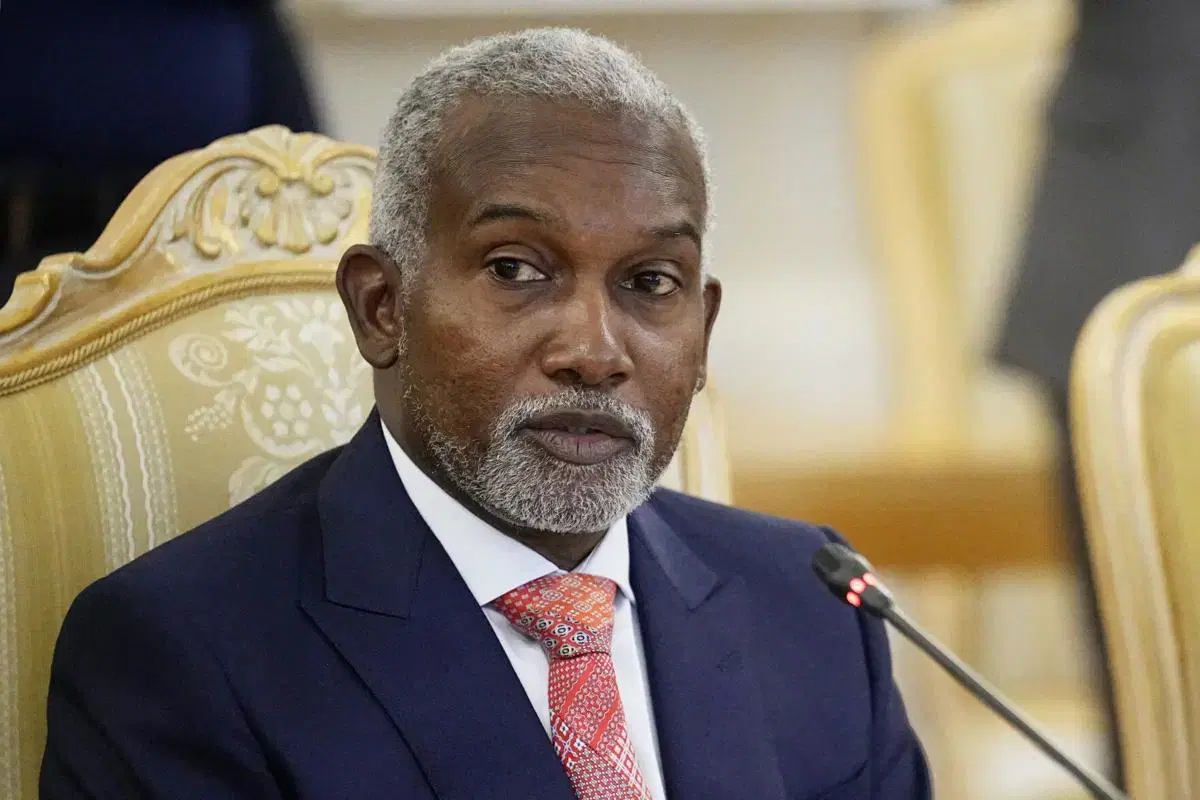
Nigeria’s Minister of Foreign Affairs, Yusuf Tuggar, has firmly rejected mounting pressure from the United States to accept deported Venezuelan nationals, some of whom are reportedly ex-convicts.
Speaking in a televised interview on Friday, Tuggar described the request, part of a broader effort under former U.S. President Donald Trump, as unreasonable and detrimental to Nigeria’s national interests.
“We Will Not Be Strong-Armed” – Tuggar Pushes Back
Minister Tuggar accused Washington of attempting to coerce African countries into taking in migrants the U.S. cannot repatriate directly.
He said Nigeria, already grappling with its own internal challenges, cannot bear the burden of receiving Venezuelan deportees.
“You have to also bear in mind that the US is mounting considerable pressure on African countries to accept Venezuelans to be deported from the US, some straight out of prison,” Tuggar stated.
“It will be difficult for a country like Nigeria to accept Venezuelan prisoners.
“We have enough problems of our own.”
He concluded bluntly, “The issue of accepting Venezuelan deportees, honestly, I don’t think is something Nigeria is in a position to work with.”
BRICS+ Tensions Loom Over U.S.-Nigeria Relations
Analysts suggest that U.S. pressure on Nigeria could be influenced by Nigeria’s recent admission into the BRICS+ alliance.
It is a powerful economic bloc comprising emerging economies including China, India, Russia, and South Africa, along with new members such as Egypt, Ethiopia, and the UAE.
Nigeria formally joined BRICS+ in January 2025, and President Bola Tinubu participated in the group’s summit held July 6–7.
Shortly afterward, President Trump announced sweeping 10% tariffs on all imports from BRICS+ countries, calling the bloc “anti-American.”
While Tuggar did not directly link the deportation request to Nigeria’s BRICS+ membership, he acknowledged that tensions between Washington and the bloc may be shaping the diplomatic landscape.
U.S. Pressure Campaign Targets Multiple African Nations
Nigeria is not alone.
During a recent White House meeting with the presidents of Gabon, Guinea-Bissau, Liberia, Mauritania, and Senegal, Trump reportedly urged each leader to agree to resettle third-country deportees, a group that includes Venezuelans among others.
According to the Wall Street Journal, the U.S. State Department circulated documents during the event asking for agreement on the “dignified, safe, and timely transfer” of these individuals from U.S. territory.
This reflects a pattern seen during Trump’s first presidency, where Washington explored relocating migrants to third-party nations if deportation to their countries of origin proved difficult or legally blocked.
“This Might Just Be the Beginning” – Tuggar Warns
Minister Tuggar raised concerns that the deportation request could be just the first in a series of U.S. demands.
“I think it would be unfair to insist that Nigeria accepts 300 Venezuelan deportees,” he said.
“Maybe that might just even be the beginning.”
Although he did not elaborate on what further demands might follow, Tuggar’s comments point to growing unease about Washington’s diplomatic posture toward African nations.
Visa Policy Disputes Add to Diplomatic Strain
In addition to migration issues, U.S.-Nigeria relations are facing friction over recent changes to visa policies.
The U.S. Mission in Nigeria announced updates this week to non-immigrant visa rules for Nigerians, suggesting a shift toward more restrictive policies.
Tuggar, however, dismissed U.S. claims that the move was part of a “reciprocal” arrangement.
He clarified that Nigeria’s own recent visa reform, which now issues 90-day visas electronically rather than upon arrival, was aimed at improving efficiency, not retaliation.
“We are talking to the Americans.
“We are engaging them.
“We are also reminding them that we issue visas the same way they do,” Tuggar said.
“Our visa doesn’t say every American gets only 90 days. Many Americans have long-term visas… it is not based on reciprocity.”
Conclusion: A Diplomatic Flashpoint in the Making
Tuggar’s remarks reveal growing diplomatic tension between Nigeria and the United States, driven by immigration demands, visa disputes, and geopolitical realignments such as BRICS+.
As Nigeria asserts its independence on the world stage, especially through its BRICS+ membership, it appears less willing to comply with Washington’s unilateral expectations.
This is supposedly a stance that could reshape U.S.-Africa relations in the years ahead.
Africa
JUST IN: Burkina Faso Bans Bill Gates-Backed GMO Malaria Project

Burkina Faso’s military government has halted a malaria eradication project backed by billionaire philanthropist Bill Gates and his foundation.
The project, run by the research consortium Target Malaria, focused on releasing genetically modified mosquitoes into the environment to help eradicate malaria.
On Friday, authorities ordered Target Malaria to immediately suspend all operations in the West African nation.
The move marks yet another clash between the government and international non-governmental organizations, many of which have faced intense restrictions under military rule.
The decision sparked heated reactions from civil society groups. Opponents of the project argue that Burkina Faso should focus on safer and more traditional solutions rather than experimenting with controversial genetic technologies.
A spokesperson for a coalition campaigning against the project stated that citizens “deserve protection through proven health measures, not risky experiments.”
Target Malaria, however, defended its work.
The group insisted that since 2012, it has complied with Burkina Faso’s national laws and worked closely with local authorities.
It expressed readiness to cooperate further with the government despite the sudden suspension.
The project has faced criticism not only within Burkina Faso but also internationally.
It became the target of online disinformation campaigns that claimed the genetically modified mosquitoes posed unforeseen dangers to the ecosystem.
While the first release of such mosquitoes took place in 2019, the long-term effects remain under global scientific debate.
Burkina Faso, one of the ten countries most affected by malaria, recorded more than eight million cases in 2024 alone.
The disease remains one of the leading causes of death in the country, particularly among children under five.
Supporters of the Target Malaria initiative argue that innovation is crucial to ending this deadly cycle, but critics fear it could introduce new risks.
This ban comes amid wider tensions between the military rulers and international organizations.
Since seizing power nearly three years ago, Captain Ibrahim Traoré’s administration has increasingly tightened control over foreign-funded NGOs.
In recent months, the government revoked the licenses of at least 21 groups, accusing some of pushing foreign agendas and destabilizing national sovereignty.
Analysts see the latest crackdown as part of a broader trend. Burkina Faso’s rulers are distancing the country from Western-backed projects while strengthening ties with alternative global partners.
However, the sudden halt to malaria research may come at a cost, as the country continues to battle one of the world’s deadliest diseases.
For now, the future of genetically modified mosquito projects in Burkina Faso remains uncertain.
The debate highlights the sharp divide between innovation and caution, science and politics, as the country balances urgent health needs with national sovereignty concerns
Africa
Why Every Nigerian Should Learn Combat Skills — CDS

The Chief of Defence Staff (CDS), General Christopher Musa, has urged all Nigerians to acquire combat skills such as Karate, Taekwondo, and Judo to protect themselves in the face of increasing danger.
Speaking on Channels Television’s Politics Today programme on Thursday, August 21, General Musa likened learning martial arts to other essential survival skills, including driving and swimming.
“That one should be taken as learning driving, learning how to swim.
Whether we have war or not, it is a survival instinct,” he said.
He added that in Europe, swimming and basic security education are compulsory because citizens must understand and practice personal safety.
The defence chief emphasised that the National Youth Service Corps (NYSC) should incorporate unarmed combat training into its programme to prepare graduates for real-world threats.
He explained, “That’s what the NYSC is supposed to do, but the NYSC has been watered down to three weeks. Self-defence is very important.
Unarmed combat, swimming, driving these are critical aspects of human survival. We should never take them for granted because they prepare us for the future.”
General Musa further encouraged Nigerians to remain situationally aware of their environment, alerting authorities to any suspicious activities or individuals.
He said, “The world we are in now is dangerous. We have individuals who don’t mean people well. They kill for whatever reason.”
Highlighting evolving threats, General Musa disclosed that terrorists increasingly use gold to finance their operations.
He noted that complex international networks make it difficult to immediately expose or prosecute these financiers. “Gold is the main source.
They circulate it through various channels, including foreign links, which complicates intervention,” he explained.
General Musa acknowledged that bad roads and challenging terrains hinder rapid military response to attacks.
He said, “Many Nigerians expect immediate intervention from the Armed Forces without understanding the logistical challenges. By the time information reaches us, terrorists have already struck and vanished because they move more quickly in these regions.”
He added that improvised explosive devices (IEDs) in the North-East further slow troop movement.
Regarding the Southeast, General Musa noted that the arrest of pro-Biafran agitator Simon Ekpa in Finland in November 2024 has improved security in the region.
He said, “Troops are actively pursuing Ekpa’s lieutenants in Imo, Enugu, Anambra, Ebonyi, and Abia states. We will continue operations until all threats are neutralised.”
The CDS also praised the synergy among the Nigerian Army, Air Force, and Navy, which led to the arrest of Ansaru terrorist leaders, describing it as a major success in the fight against terrorism.
General Musa concluded by announcing an African Chiefs of Defence Staff conference to foster continental collaboration and enhance regional security efforts.
Africa
‘Misplaced Priority’: Peter Obi Blasts FG’s ₦142bn Bus Terminal Project

Former Labour Party presidential candidate Peter Obi has slammed the Federal Government’s approval of ₦142 billion for the construction of bus terminals across Nigeria, describing it as a reckless misplacement of priorities.
Obi issued a statement on Friday, August 22, via his Official X formerly Twitter platform, warning that the project reflects poor leadership and lack of focus in managing Nigeria’s limited resources. He titled his statement, “₦142 Billion for Bus Terminals.”
According to him, the true test of leadership is how scarce resources are prioritized.
He stressed that investing such a huge amount in bus terminals while critical sectors like healthcare suffer shows a government that is out of touch with citizens’ realities.
Obi said: “The difference between success and failure in any nation is how leaders prioritise resources.
The decision to spend ₦142 billion on six bus terminals exposes a lack of competence and vision. It is a clear sign of poor leadership.”
The Federal Executive Council had recently approved the funds for the construction of one modern bus terminal in each of the six geopolitical zones.
The government described it as part of efforts to modernise transport infrastructure and improve mobility nationwide.
But Obi strongly disagreed. He compared the allocation to healthcare funding, pointing out that the combined budget for all teaching hospitals and federal psychiatric centres in Nigeria is less than ₦100 billion in the 2024 budget.
“This is disturbing,” Obi continued, “because health remains one of the most critical sectors of development. Yet it is underfunded and deteriorating rapidly.
The World Health Organization has reported that over 20 million Nigerians live with mental health conditions.
This is a tragic irony. How can the government ignore this crisis and focus on bus terminals?”
He argued that the health sector, alongside education and poverty reduction programs, deserves priority attention.
Obi insisted that until government spending reflects the real needs of Nigerians, the country will remain trapped in poor governance.
Many Nigerians have also taken to social media to express anger, echoing Obi’s concerns. Critics argue that the decision proves the Federal Government is disconnected from the economic struggles of ordinary citizens.
For Obi, the ₦142 billion project is not just a case of wrong timing.
He sees it as a clear example of governance failure and misplaced priorities.
Africa
Canada Announces Permanent Residence Lottery Results for Foreign Workers

Canada has carried out a new Express Entry lottery, inviting thousands of skilled workers to apply for permanent residency.
Financial Express report that the Announcement which came on Wednesday, August 20, 2025, marks one of the most significant rounds this year.
Immigration, Refugees and Citizenship Canada (IRCC) invited 4,200 candidates in the latest Express Entry draw.
The invitations were sent under the no-program-specified category, which means candidates from all economic immigration programs were considered.
To qualify, candidates needed a Comprehensive Ranking System (CRS) score of at least 507 points.
This cut-off is higher than several recent rounds, showing rising competition in Canada’s immigration pool.
Breakdown of Recent Express Entry Draws
The August 20 general draw came just a week after Canada held two smaller, targeted draws.
On August 14, 2025, IRCC issued 1,500 invitations in a Healthcare category-based draw, with a minimum CRS of 430.
On August 13, 2025, another STEM occupation draw invited 1,000 candidates, with a CRS cut-off of 481.
This means Canada has invited more than 6,700 candidates in August alone, highlighting its steady demand for skilled workers.
Why Express Entry Remains Key
The Express Entry system is Canada’s main pathway for skilled migration. It manages applications for three major programs:
- Federal Skilled Worker Program (FSWP)
- Federal Skilled Trades Program (FSTP)
- Canadian Experience Class (CEC)
Through this system, candidates are ranked by CRS points based on age, education, work experience, language skills, and adaptability. Higher scores improve the chance of receiving an Invitation to Apply (ITA).
Impact of the Rising CRS
The 507-point cut-off has sparked concern among applicants.
Many worry that higher thresholds make it harder to qualify unless they boost their profiles with stronger English or French test results, higher education, or Canadian job offers.
Immigration experts note that Canada is prioritizing candidates who are more likely to integrate quickly into the economy.
With rising competition, applicants may need to explore provincial nomination programs (PNPs), which can add up to 600 extra CRS points.
Canada’s Immigration Targets
Despite higher CRS cut-offs, Canada’s immigration outlook remains ambitious.
The government has pledged to welcome 485,000 new permanent residents in 2024 and 500,000 in 2025.
Skilled workers make up a large share of this intake.
With labor shortages in sectors like healthcare, technology, and construction, Canada continues to use Express Entry to attract foreign talent.
What Applicants Should Do
Experts recommend that prospective migrants keep their profiles updated and monitor both general and category-based draws.
Targeted draws for healthcare, STEM, and trades occupations often have lower CRS cut-offs, giving candidates more opportunities.
For those struggling to meet the high CRS threshold, exploring study routes in Canada, provincial nominations, or job offers may increase chances.
The August 20 Express Entry draw shows Canada’s ongoing commitment to skilled immigration.
With over 4,200 invitations issued and CRS cut-offs climbing, the competition is intense.
However, the system continues to provide multiple entry points for determined applicants worldwide.
Africa
Japan Designates City as Hometown for Nigerians

The Japanese government has officially designated the city of Kisarazu as the hometown for Nigerians, marking a major step in strengthening cultural diplomacy and workforce collaboration between both nations.
The announcement was made during the ninth Tokyo International Conference for African Development (TICAD9) and confirmed by the Director of Information at Nigeria’s State House, Abiodun Oladunjoye.
According to the agreement, the Japanese government will introduce a special visa category for highly skilled and innovative young Nigerians who are willing to relocate to Kisarazu to live and work.
This initiative also extends to artisans and blue-collar workers from Nigeria who are ready to upskill and contribute to Japan’s economy.
At the same event, the Japan International Cooperation Agency (JICA) designated three other cities as hometowns for African nations:
Nagai in Yamagata Prefecture for Tanzania,
Sanjo in Niigata Prefecture for Ghana, and Imabari in Ehime Prefecture for Mozambique.
These hometown designations aim to foster manpower development, cultural exchanges, and economic partnerships that will benefit both Japan and the participating African countries.
Nigeria-Japan Partnership
Nigeria’s Charge d’Affaires and Acting Ambassador to Japan, Mrs. Florence Akinyemi Adeseke, received the certificate on behalf of Nigeria alongside Yoshikuni Watanabe, the Mayor of Kisarazu.
The ceremony highlighted the city’s longstanding relationship with Nigeria, as Kisarazu was the official host town for the Nigerian contingent during the 2020 Tokyo Olympics, where athletes trained and acclimatised before moving to the Olympic village.
Local Japanese authorities hope that designating Kisarazu as Nigerians’ hometown will boost the city’s population, enhance regional revitalisation, and strengthen bilateral cooperation.
Japan’s Vision for Africa
Japanese Prime Minister Shigeru Ishiba, in his address at TICAD9, announced $5.5 billion in new investments across Africa.
He stressed the importance of mutual understanding, local solutions, and collaborative development, focusing on three key areas:
Private sector-led sustainable growth,
Youth and women empowerment.
Prime Minister Ishiba also acknowledged Japan’s challenges with an ageing population and shrinking agricultural land, calling on African nations to support Japan while benefiting from expanded cultural and economic opportunities.
What This Means for Nigerians
For Nigerians, the recognition of Kisarazu as their official hometown in Japan provides more than symbolic value.
It creates new employment opportunities, encourages skills transfer, and opens a pathway for closer cultural integration between both nations.
This strategic move underscores Japan’s commitment to forging deeper ties with Africa, while offering Nigerians a platform to thrive abroad
-

 Celebrity/Entertainment2 days ago
Celebrity/Entertainment2 days agoHow Nigerian TikToker Geh Geh Made ₦45 Million in One Night
-
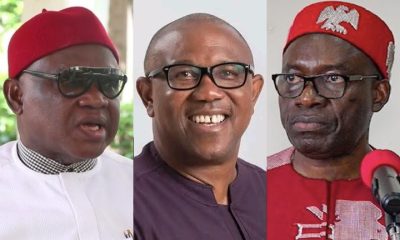
 Featured6 days ago
Featured6 days agoYour Attacks on Peter Obi Are Petty, Stop It! Chekwas Rebukes Soludo
-
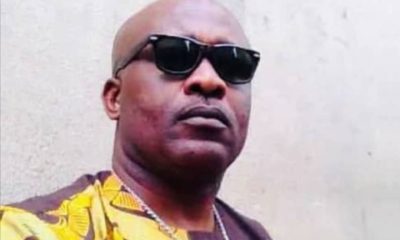
 News5 days ago
News5 days agoTension in Anambra community as senior police officer shoots kinsman dead
Colleagues, others try cover-up; victim's family fights back
-

 News6 days ago
News6 days agoNigerian visa applicants must provide 5-yr social media history — US embassy
-

 News4 days ago
News4 days agoTerrorist Organisation: APC, PDP Members in US, UK, France Risk Deportation
-

 Celebrity/Entertainment6 days ago
Celebrity/Entertainment6 days agoWhy single mothers can’t raise boys into proper men — Jim Iyke
-

 News3 days ago
News3 days agoVandal electrocuted while vandalizing Aba power infrastructure
-

 News3 days ago
News3 days ago15% of Nigerian girls aged 15–19 are mothers or pregnant — FG
-

 News3 days ago
News3 days agoPeter Obi’s Son Breaks Silence Over His Viral Photos Nigerians Are Talking About
-

 News2 days ago
News2 days agoI’m not a gay — Obi’s son Oseloka speaks on viral picture



